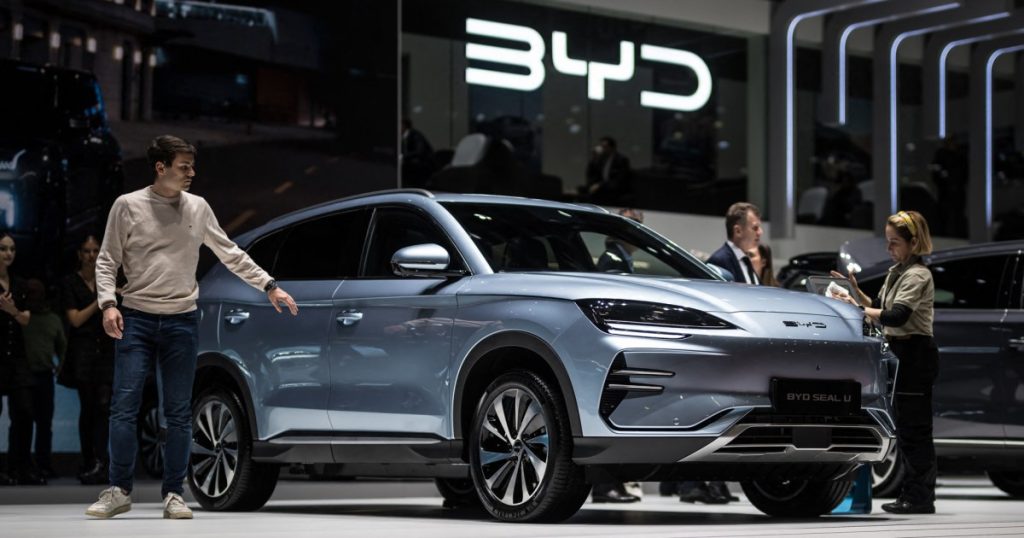China-made electric vehicles are gaining a significant share of the market in Europe, with the country’s share of EV sales in the region increasing by over 5% from the previous year. Last year, 19.5% of battery-powered EVs sold in the European Union were from China, with countries like France and Spain seeing close to a third of their EV sales coming from Chinese manufacturers. The European Federation for Transport and Environment (T&E) predicts that China’s share of the European EV market will rise to over 25% by 2024, with Chinese brands like BYD expanding globally.
Western brands like Tesla, which manufactures and ships EVs from China, currently dominate the EV market in the EU. However, Chinese brands alone are forecasted to account for 11% of the market by 2024, and could potentially reach a 20% share by 2027. This trend is supported by China’s investments in EV technology and production capacity, as well as the affordability of Chinese-made EVs. The European Commission is investigating subsidies given to Chinese EV makers, potentially including non-Chinese brands that manufacture in China, such as Tesla and BMW, to determine if they are unfairly undercutting local companies.
China’s success in the EV market can be attributed to incentives put in place in the early 2010s that spurred the growth of startups and increased battery cell capacity in the country. This has allowed Chinese manufacturers to produce quality EVs at affordable prices, creating a competitive advantage over legacy automakers in the EU and the US. According to Tu Le, founder of Sino Auto Insights, the focus on designing and engineering EVs has been relatively recent for Western automakers, contributing to their lag in offering affordable and quality electric vehicles compared to Chinese brands.
Chinese manufacturers like BYD are ramping up their global expansion efforts, with a strong presence in Europe and other markets outside of China. The increasing market share of China-made electric vehicles in Europe reflects the country’s commitment to EV technology and production. As the demand for electric vehicles continues to grow, Chinese brands are positioned to become significant players in the global market, challenging Western brands and potentially reshaping the industry. The ongoing subsidy investigation by the European Commission highlights the competitive dynamics in the EV market and the importance of fair competition for all players.
Overall, the rise of China-made electric vehicles in Europe signifies a shift in the global automotive industry, with Chinese brands gaining prominence and market share. The affordability and quality of Chinese EVs, coupled with government incentives and investments in EV technology, have enabled Chinese manufacturers to compete effectively on the global stage. As Chinese brands continue to expand their presence in key markets like Europe, they are expected to play a significant role in shaping the future of the electric vehicle market and driving innovation in the industry.


